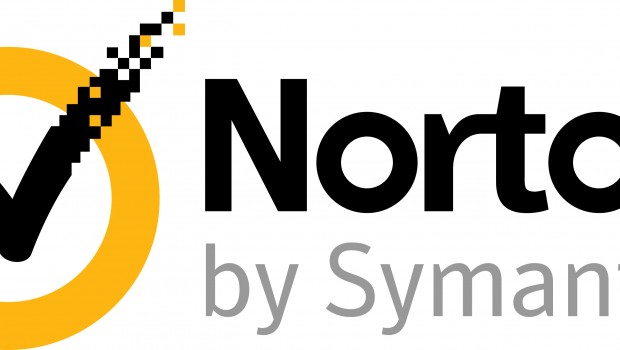Hackers Hone their Skills While Consumers Remain Complacent
Sydney, AUSTRALIA – 23 November, 2016 – Norton by Symantec (NASDAQ: SYMC), today released findings from the annual Norton Cyber Security Insights Report, which sheds light on the truth about online crime and the personal effect it has on consumers.
The research found Australians who were affected by cybercrime within the past year often continued their unsafe behaviour. While most Australians claim to use a secure password on every account, almost 1 in 4 (24 percent) are likely to share their password with others, negating their efforts. Additionally, 43 percent of Australians that own connected home devices have at least one unprotected, leaving themselves vulnerable to ransomware, malicious websites, zero days and phishing attacks. Nationwide, 76 percent of consumers know they must actively protect their information online, but are still sharing passwords and engaging in other risky behaviours.
“Our findings show that people are growing increasingly aware of the need to protect their personal information online, but aren’t motivated to take adequate precautions to stay safe,” said Mark Shaw, Technology Strategist, Symantec. “While consumers remain complacent, hackers are refining their skills and adapting their scams to further take advantage of people, making the need for consumers to take some action increasingly important.”
Given the rampant rates of cybercrime the complacency in behaviour is concerning. Within the past year, 689 million people in 21 countries were victims of cybercrime, an increase of 10 percent across the 17 countries that were measured in 2015.
Overconfidence in Connected Devices Leaves Consumers Vulnerable
With every connected home device purchase, consumers are unknowingly giving hackers a new avenue to launch attacks. In some instances, poor consumer security habits and vulnerabilities in connected devices are letting hackers into consumers’ homes.
- One in four (26 percent) connected home device users in Australia don’t have any protective measures in place for these devices.
- Over four in ten (41 percent) Australians surveyed don’t believe there are enough connected devices users for them to be a worthwhile target for hackers. Yet, just as hackers learned to benefit from targeting social media and financial accounts, they are on their way to learning how access to connected home devices can be lucrative.
- Globally, more than six in 10 (62 percent) consumers said they believe connected home devices were designed with online security in mind however, according to Symantec research, in 2015, criminals compromised TVs, toys, refrigerators, doorbells and even medical devices. Symantec researchers also identified security vulnerabilities in 50 different connected home devices ranging from smart thermostats to smart energy management devices, and even security cameras.
Consumers Admit the Risks Are Real
The prevalence of cybercrime has merged with peoples’ perception of real-world risks. Many Australians now see cybercrime dangers as equivalent to risks in the real world:
- The majority (72 percent) of Australian respondents said that over the past five years, it’s become harder to stay safe online vs 55% who said the same of the real world.
- Almost two-thirds (65 percent) said they believe entering financial information online when connected to public Wi-Fi is riskier than reading their credit or debit card number aloud in a public place.
- More than half of parents (54 percent) believe their children are more likely to be bullied online than on a playground, which is higher than the 39 percent of parents who said this in 2015.
Bad Habits Are Hard to Break – Online or Otherwise
Experiencing cybercrime is a potential consequence of living in a connected world, but consumers still remain complacent when it comes to protecting their personal information online.
- Millennials exhibit surprisingly slack online security habits, and are happy to share passwords that compromise their online safety (40 percent). This is likely why they remain the most common victims of cybercrime, with 36 percent of millennials having experienced cybercrime in the past year.
- The majority of Australian consumers (82 percent) never, or only occasionally, connect to a Wi-Fi network using VPN, which can potentially allow a hacker to steal data as it travels on the network.
- Consumers are still willing to click on links from senders they don’t know or open malicious attachments. Globally, nearly three in 10 people cannot detect a phishing attack, with 1 in 4 (25 percent) Australians not being able to determine the difference between a real message and a phishing email.
- An overwhelming majority of Australians (83 percent) have Wi-Fi in their homes, to the point it is now ubiquitous, but only 22 percent say it is likely their networks have potential to be compromised. Furthermore, 17 per cent of Australians believe only those with connected devices need protection for their Wi-Fi.
Norton Top Tips to Stay Safe Online
Just as we don’t leave our front door open when we head out on vacation, we shouldn’t leave our information vulnerable online. By adopting a few basic behaviours, we can make big strides in mitigating cybercrime risk:
- Avoid password promiscuity: Protect your accounts with strong, unique passwords that use a combination of at least 10 upper and lowercase letters, symbols and numbers to help keep the bad guys at bay. Make it difficult for attackers to access your information by changing your passwords every three months and not reusing passwords for multiple accounts. That way, if a cybercriminal gets your password, they can’t compromise all of your accounts. And if it’s too overwhelming to keep up this practice, use a password manager to help!
- Don’t go on a phishing expedition: Think twice before opening unsolicited messages or attachments, particularly from people you don’t know, or clicking on random links. The message may be from a cybercriminal who has compromised your friend or family member’s email or social media accounts.
- Don’t keep a (dis)connected home: When installing a new network-connected device, such as a router or smart thermostat, remember to change the default password. If you don’t plan on using the Internet feature(s), such as with smart appliances, disable or protect remote access when not needed. Also, protect your wireless connections with strong Wi-Fi encryption so no one can easily view the data traveling between your devices.
- Be in control when online: Entrust your devices to security software to help protect you against the latest threats. Protect all your devices with a robust, multi-platform solution, like Norton Security Premium.
- Know the ins and out of public Wi-Fi networks: Accessing personal information on unprotected public Wi-Fi is like broadcasting your entire screen on TV – everything you do on a website or through an app, could potentially be exposed. Avoid anything that involves sharing your personal information (paying a bill online, logging in to social media accounts, paying for anything with a credit card, etc.).










